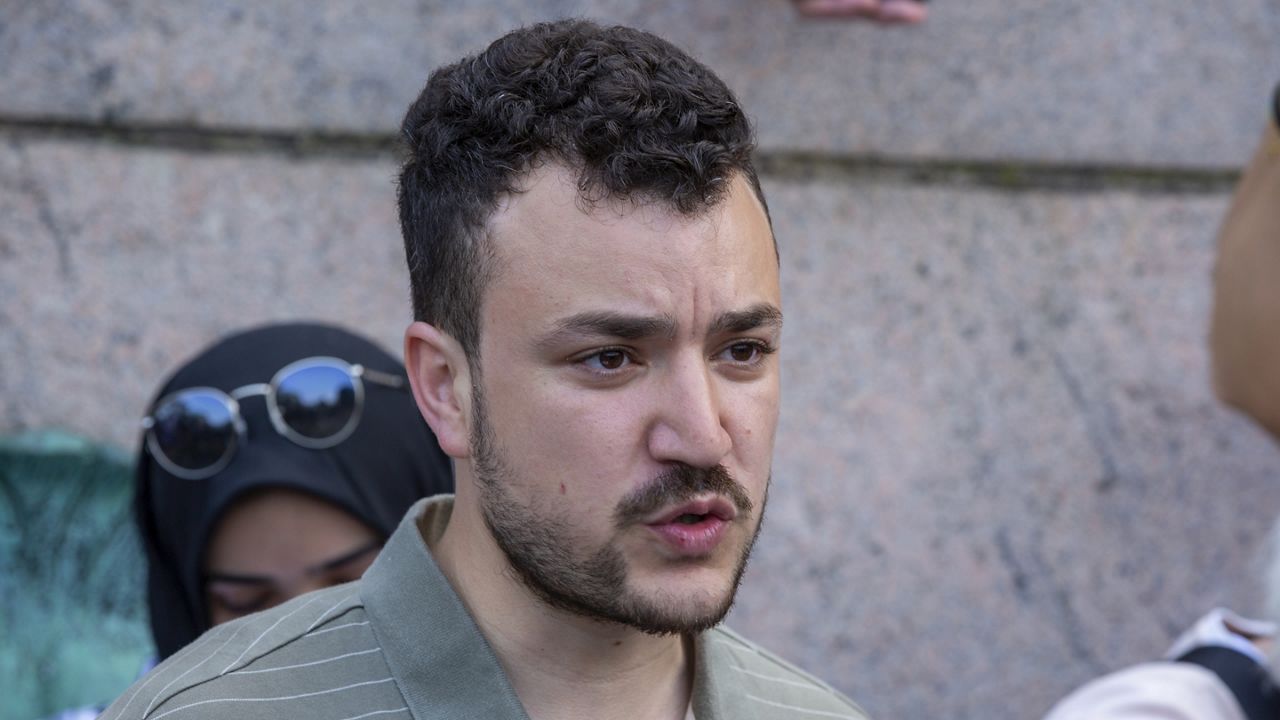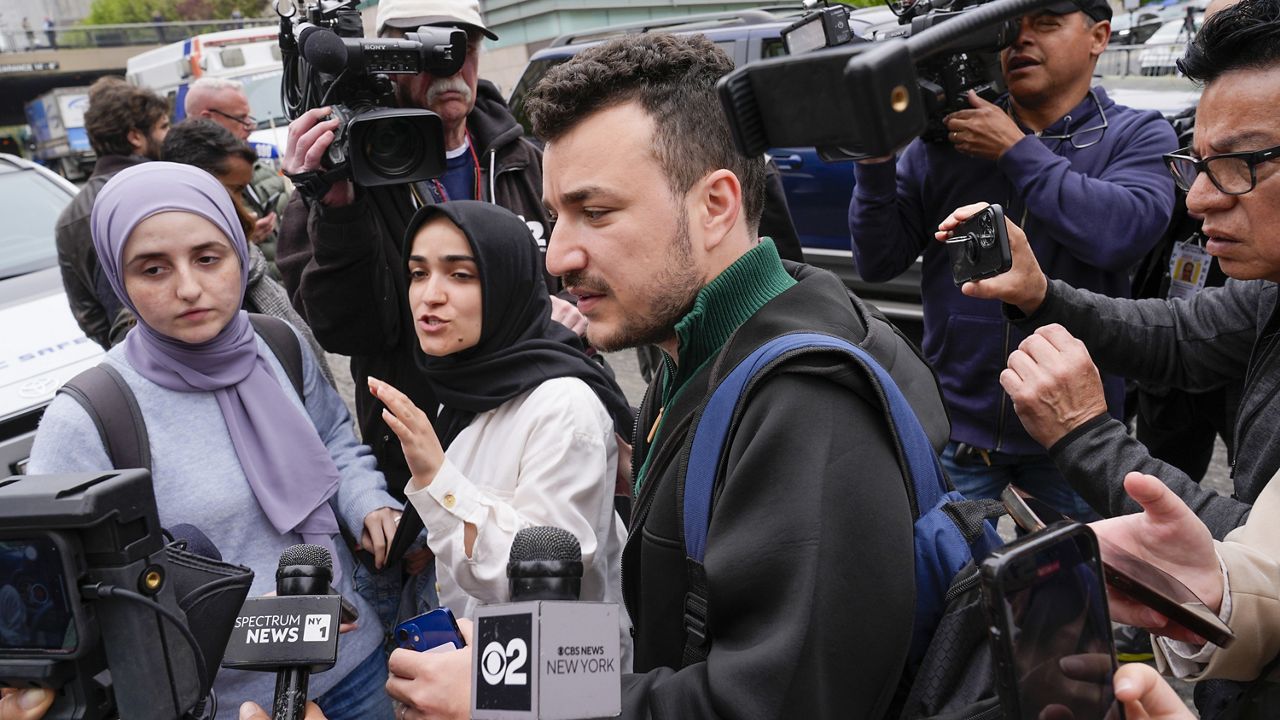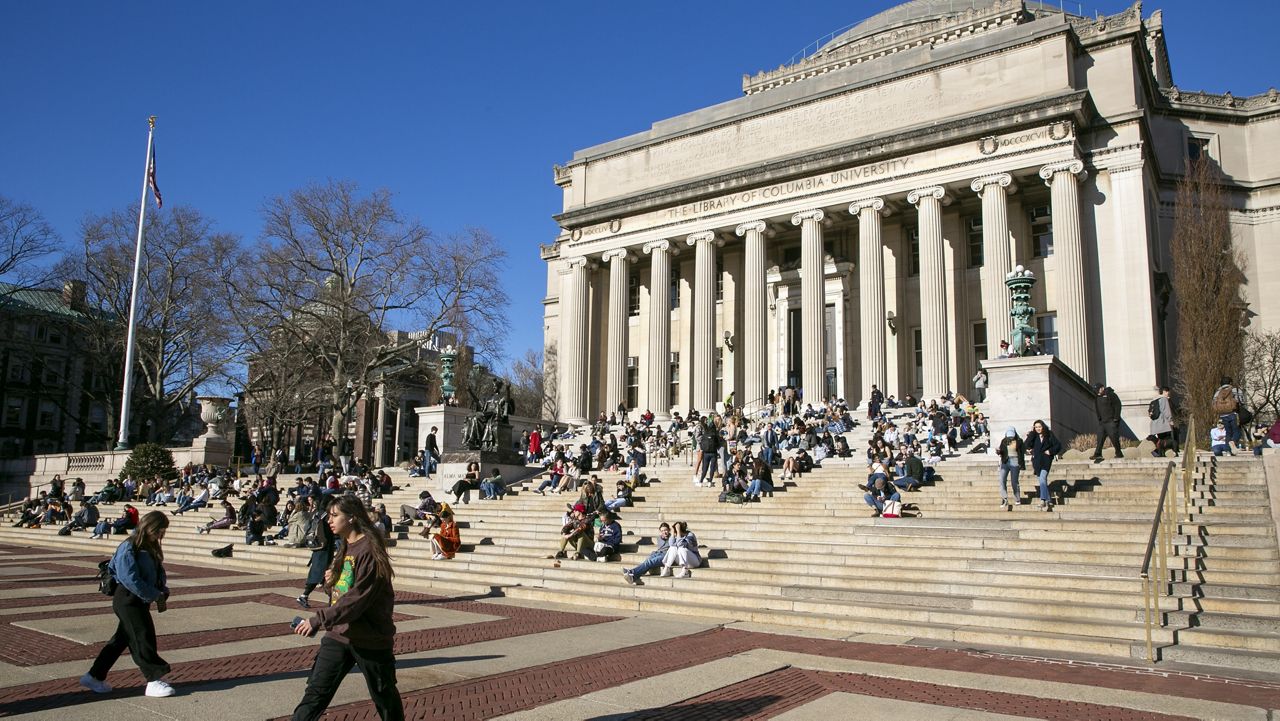Schools Chancellor David Banks announced his vision for the city’s special education system on Thursday, including plans to expand a popular pilot program serving children with intensive sensory needs.
In remarks Thursday morning in the Bronx, Banks laid out his plan to rebuild trust in the city’s special education system, which for years has been plagued by delays in children getting services or being evaluated for Individualized Education Plans, or IEPs.
Banks received some criticism earlier this year for saying the city spends too much money on sending children with special needs to private school and saying some parents “game this system.”
What You Need To Know
- NY1 got an exclusive look at a popular pilot program for children with sensory needs the city will expand to 80 locations
- Schools Chancellor David Banks announced the expansion in the Bronx Thursday
- The SEED program combines play with physical and occupational therapy and emotional support, aimed at getting students in a better mindset for learning
The education department will pay for students to attend private schools if their needs cannot be met in public schools, often as the result of parents suing the DOE.
At Thursday's press conference, where he rolled out plans to expand some popular special education programs, Banks struck a different tone about parents who have left the system.
“The families that felt the need to leave our schools because they were not able to meet your child's needs, I hope that today marks the beginning of an announcement that helps rebuild your trust with our schools and will give you a reason to come back to your local public school,” he said. That includes the SEED Pilot Program, which stands for Sensory Exploration, Education and Discovery. Geared toward helping students who have intensive sensory needs, the program combines play with therapy and emotional support, to get students in a better frame of mind for learning.
It provides the kind of resources — like climbing walls or sensory swings — often found in pricey private sensory gyms. The activities help students self-regulate and get in a better frame of mind for learning.
The city currently has 10 SEED rooms across the five boroughs and children from schools in the surrounding area are referred by their therapists to attend a SEED site after school, or on Saturdays. Their parents or guardians are invited for part of the visit, to help them learn strategies to use at home.
By the end of this school year, the city will add 70 new SEED sites, for a total of 80 citywide, with at least one in each community school district.
NY1 got an exclusive look at the program ahead of its expansion, visiting a site in the Bronx, where 4-year-old Diego, a pre-K student, was greeted with color coded symbols to evaluate how he was feeling.
“Which one is Diego?” occupational therapist Jackie Ortiz asked.
Diego pointed to yellow, prompting Ortiz to respond: “Oh, Diego is excited.”
Diego, who has autism, struggles to communicate verbally. But in the SEED room, he can express himself through pictures, colors, symbols and play.
“It’s an intentionally designed space, specifically to help them excel and thrive,” Ortiz told NY1.
Suzanne Sanchez, senior executive director of related services for the DOE, said special education staffers often hear from parents that children — especially those with sensory issues that are common with disabilities like autism — struggle to get in a good mindset to learn.
“It’s like if you were on a subway and the subway was late and really crowded, and you’re just like, anxious and overwhelmed, to go sit in a meeting for six hours is going to be really, really difficult,” she said.
At the SEED room, children like Diego can have sensory experiences like climbing, jumping or swinging that can help them to regulate their emotions and actions throughout the day.
Diego’s mom, Myriam Ortega, says it makes a big difference for her son.
“He was shy boy, he didn’t have, how to make friends. So it was hard. After the SEED program, and he started the services, the special services, he started feeling like himself, and feeling proud of himself. Because now he’s a happy boy, he gained friends, and he can show what he has inside of him,” Ortega said.
She’s glad other children will experience what her son has.
“Diego has a better quality of life. And I know they have a lot of Diegos outside,” she said.
His therapists have also seen how much he’s grown.
“Diego is just happier. He smiles a lot more and his mom reports that when he goes home, he’s been saying words more,” said Kam Johal, the physical therapy supervisor at his SEED site.
Banks on Thursday also touted the addition of 15 new programs in the city’s ASD Nest and Horizon programs, which serve children with autism in classes alongside general education students, and with both a general education and special education teacher.
And he announced plans to expand a smaller pilot, called the Path program, modeled on the ASD Nest program but which serves children with significant emotional disabilities. That program will expand to seven classrooms at six schools by the end of the year.
It’s meant to be an alternative to more restrictive settings for children who need behavioral support.
The city also launched a new program to give internships to high schoolers with IEPs and, at the same time, provide services to younger children.
High school students with current IEPs will be able to apply to have paid internships on Saturdays — including in SEED rooms — providing services to younger children and allowing the high schoolers to explore careers in physical, occupational and speech therapy.
Banks also rolled out the creation of a new Special Education Advisory Council, to help guide the city’s work serving students with disabilities.
He said he believed that council would help the city tackle larger, more systemic issues facing special education, including the ongoing backlog of complaints filed by parents, which must be heard through an impartial hearing process that can drag on for months, while children miss out on services.
“These folks have been in this space for a longer period of time than I. I am going to be guided by their direction and their expertise and their experiences. That's why we're here. This is not, this is not a show. Folks who know me and my history, I don't, I don't do show and performance well,” Banks said. “I do these things because I deeply believe in them, and I'm going to be I'm going to be guided by what they say.”








